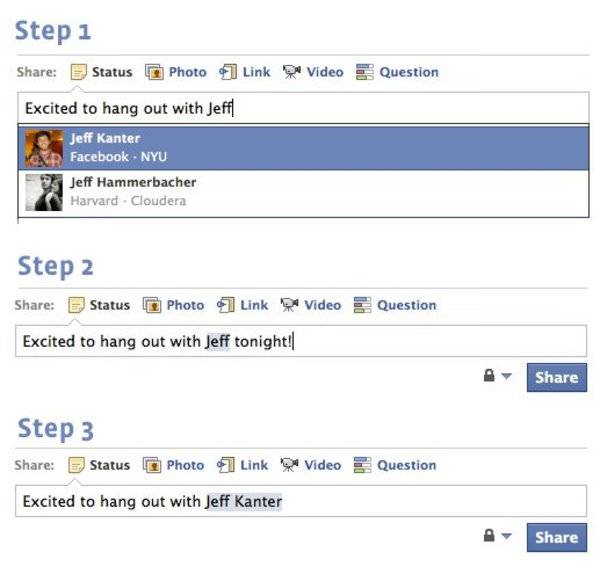
Facebook is always looking for small ways to increase user engagement. After all, us Facebook users are unbelievably fickle creatures. For example, out of users that enter more than three characters into the status update box, 17% decide not to post anything at all. Only 54% who attempt to upload a photo successfully do so in one fell swoop.
So, anything Facebook can do to keep us engaged and interacting, it will. Today, it made a tiny little change that could do just that – it began auto-suggesting your friends for inclusion in comments and status messages when it detected a name.
Before now, Facebook let users tag their friends in updates and comments by simply including the “@” symbol before they started typing the name. But that was unintuitive for many. Last summer, the company began testing auto-suggest for tagging friends, but the feature later disappeared. It began predicting names after three letters and was likely more annoying than useful. The difference now, it would seem, is that you need to type your friend’s full first name, properly capitalized, before the list drops down. For example, “John” shows all my friends named John, but “john” doesn’t.

What does auto-suggesting friends’ names for tagging do? It increases the chance that those friends will interact and use the site more. A lonely user is an infrequent user.
This isn’t the first tiny but potentially important change Facebook has made in recent times. If you’ve noticed, just over the last week, if you leave a comment but then change your mind and click on the “x” to delete it, it doesn’t just delete it. Instead, it opens up the comment and allows you to edit it. All of this in the name of user engagement.
If you’re into this sort of thing, Facebook product designer Adam Mosseri spoke recently about the many challenges Facebook faces with its often fearful and anxious user base.
The little things – I tell ya, they matter.
















